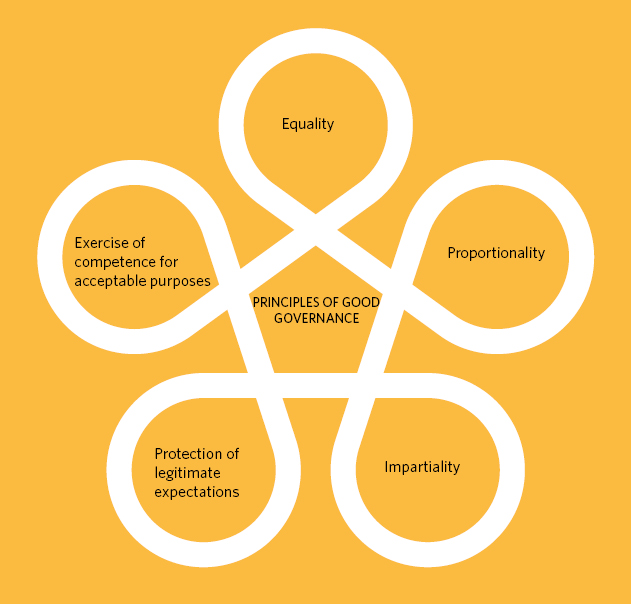Automation and artificial intelligence are an opportunity from the perspective of the principles of good governance, as they can be made value-neutral. It must be ensured, however, that they are not used to produce unreasonable decision proposals. Despite the fast-paced changes in the operating environment of public administration, we still need a human touch and the principles of good governance.
The requirement of good governance is included in the Constitution and its justification is described in the Administrative Procedure Act. The baseline is public administration following the general legal principles.
The principle of equality requires equal treatment of all persons dealing with the public administration. Persons are not to be discriminated based on their gender, age or ethnical background, for example.
The principle of proportionality requires public authorities to fit their actions to the desired outcome, i.e. to be engaged in the consideration of equity, while the principle of objective consideration requires public authorities to be objective at all times. For this principle to be achieved, the Administrative Procedure Act includes disqualification provisions. Public servants must identify situations in which they must recuse themselves from the decision-making process.
The principle of legitimate expectations means that citizens have the right to expect public authorities to make foreseeable and consistent decisions that comply with the judicial system. All decisions in similar administrative matters must be consistent.
The principle of intended purpose means that public authority must only be used for the purpose for which it is intended by law. Public authorities must not exceed their authority.
The legal principles of governance also include the public administration appropriately serving citizens, providing them with advice and using good language. Furthermore, authorities must cooperate with one another.

Principles set expectations for civil servants – also in the future
A person living in Finland is entitled to rely on the public administration in Finland following the above-mentioned principles in their operations. However, compliance with some of the legal principles of governance is not always easy. For example, writing clear text that is easy to understand is sometimes challenging, especially if the matter or phenomenon addressed is complex. Cooperation between authorities should also be further developed. Being very busy is a poor excuse for not cooperating to a sufficient extent.
What about the development of digitisation, then? People working in public administration must be careful when processes are automated and solutions based on AI are taken into use.
Automation and artificial intelligence are an opportunity from the perspective of the legal principles of governance, as they can be made value-neutral. However, the development includes the risk of using automation to produce decision proposals that are unreasonable. For example, there may be an apparent error in the information provided by the party that initiated the processing of a matter, and this party should be given the opportunity to correct the information. AI must not make any decisions that are based on partially erroneous data.
The need for humans and the human touch will not disappear. Case-by-case consideration will still be needed.
Without change there will be no development
Even though the operating environment is changing and the public administration is developing, the requirements for good governance will not change. Quite the contrary, actually: trust in the appropriateness of governance offers security during a change. Citizens, enterprises and communities can rely on the legal principles of governance being considered in all changes – no matter how large or small – and in the related legislative work, regardless of whether they apply to society as a whole or just a small part of it.
Changes are welcome and technological development is welcome! Who would want to live in a world where accounting is carried out by making notes with a pen in account books, the only available means of payment is cash, and there is no Internet?
It is fundamental that everybody benefits from the development and that nobody is subjected to unreasonable expectations. We should bear in mind that it is the public administration that serves society and its citizens, not vice versa.
Tanja Wistbacka
Deputy Director, State Treasury

